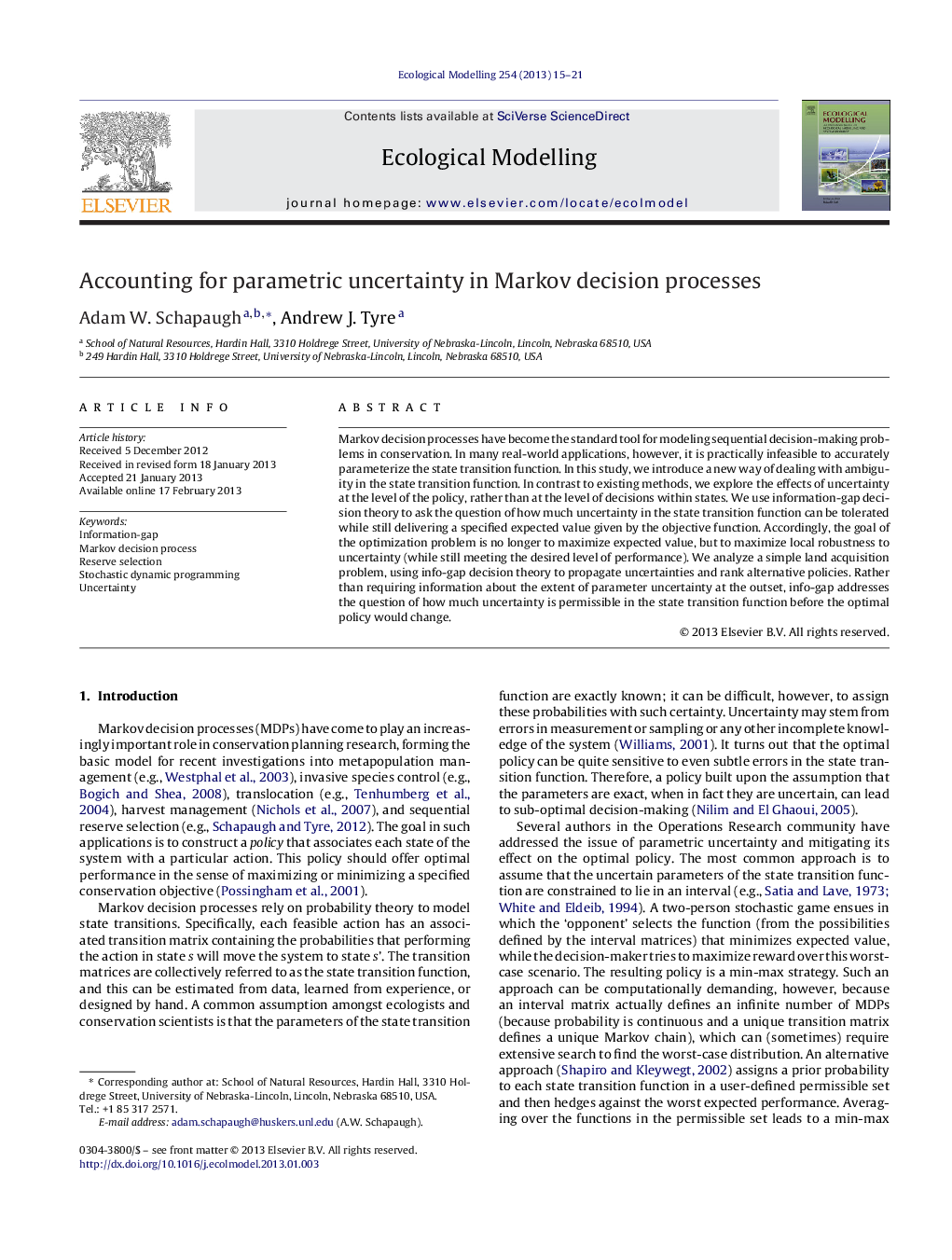| Article ID | Journal | Published Year | Pages | File Type |
|---|---|---|---|---|
| 4376173 | Ecological Modelling | 2013 | 7 Pages |
Markov decision processes have become the standard tool for modeling sequential decision-making problems in conservation. In many real-world applications, however, it is practically infeasible to accurately parameterize the state transition function. In this study, we introduce a new way of dealing with ambiguity in the state transition function. In contrast to existing methods, we explore the effects of uncertainty at the level of the policy, rather than at the level of decisions within states. We use information-gap decision theory to ask the question of how much uncertainty in the state transition function can be tolerated while still delivering a specified expected value given by the objective function. Accordingly, the goal of the optimization problem is no longer to maximize expected value, but to maximize local robustness to uncertainty (while still meeting the desired level of performance). We analyze a simple land acquisition problem, using info-gap decision theory to propagate uncertainties and rank alternative policies. Rather than requiring information about the extent of parameter uncertainty at the outset, info-gap addresses the question of how much uncertainty is permissible in the state transition function before the optimal policy would change.
► We introduce a new way of dealing with uncertainty in Markov decision processes. ► We model ambiguity in the state transition function using info-gap decision theory. ► The objective of the optimization is to maximize local robustness to uncertainty. ► We illustrate how ‘best-model’ strategies are vulnerable to error.
